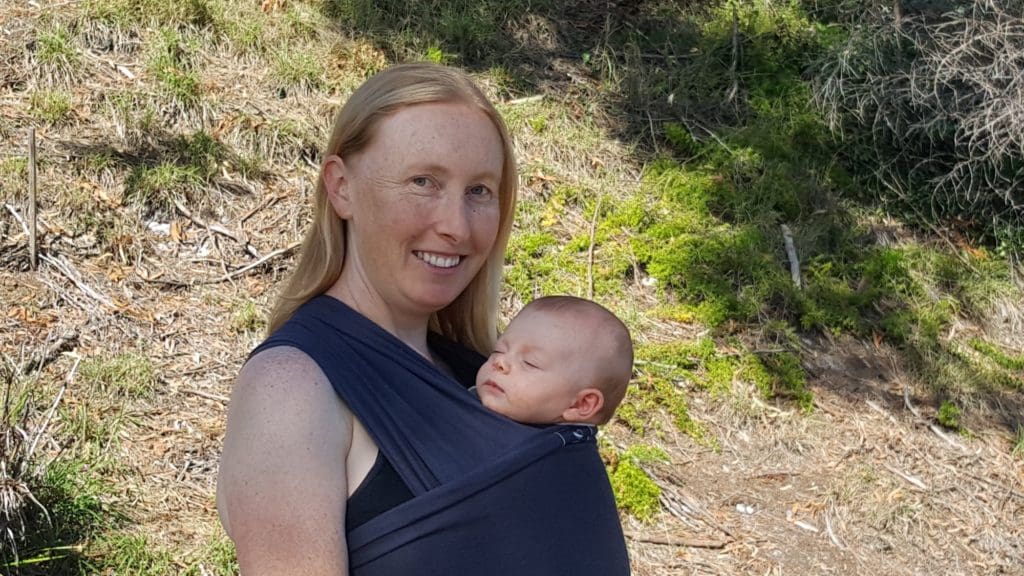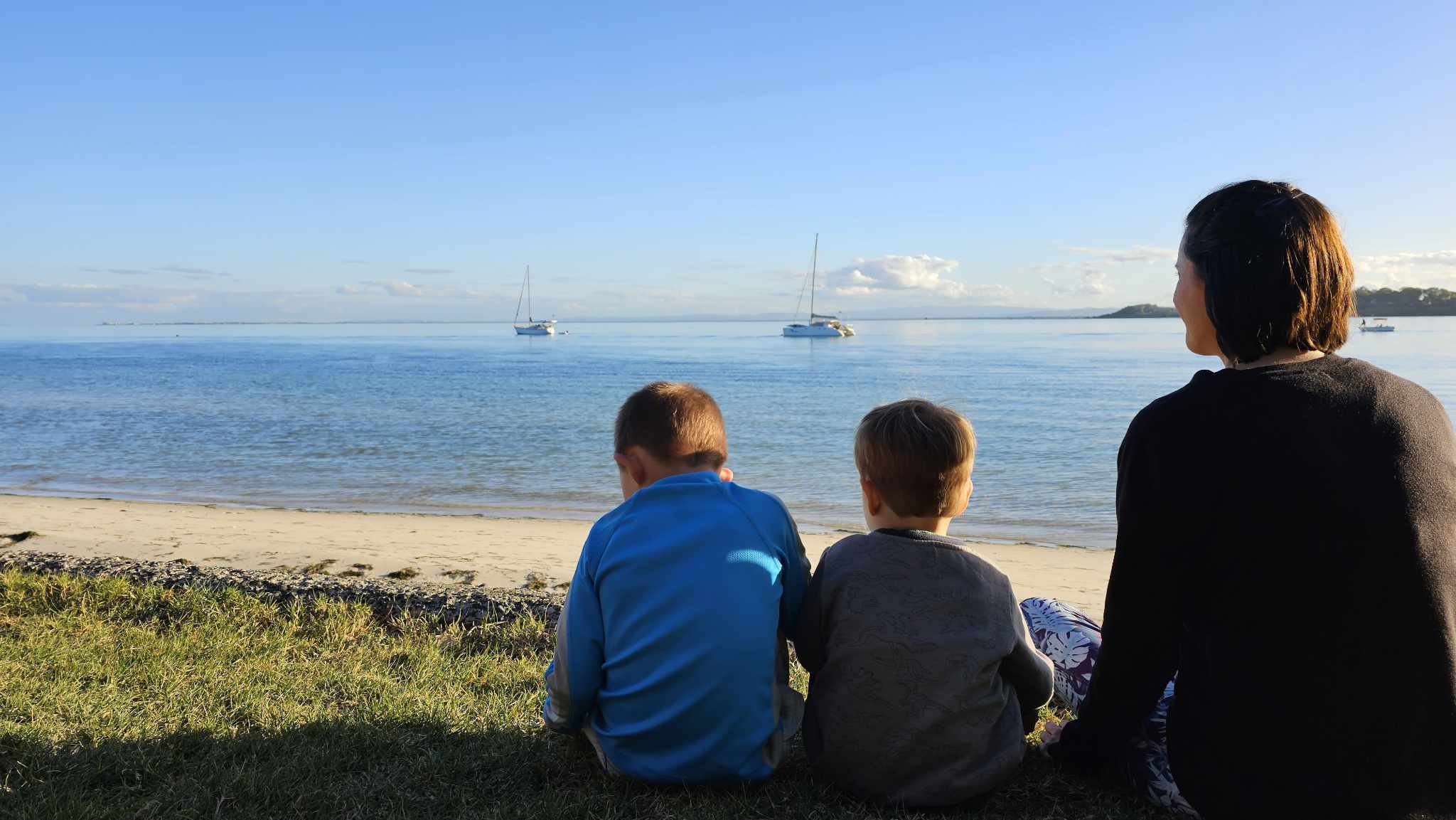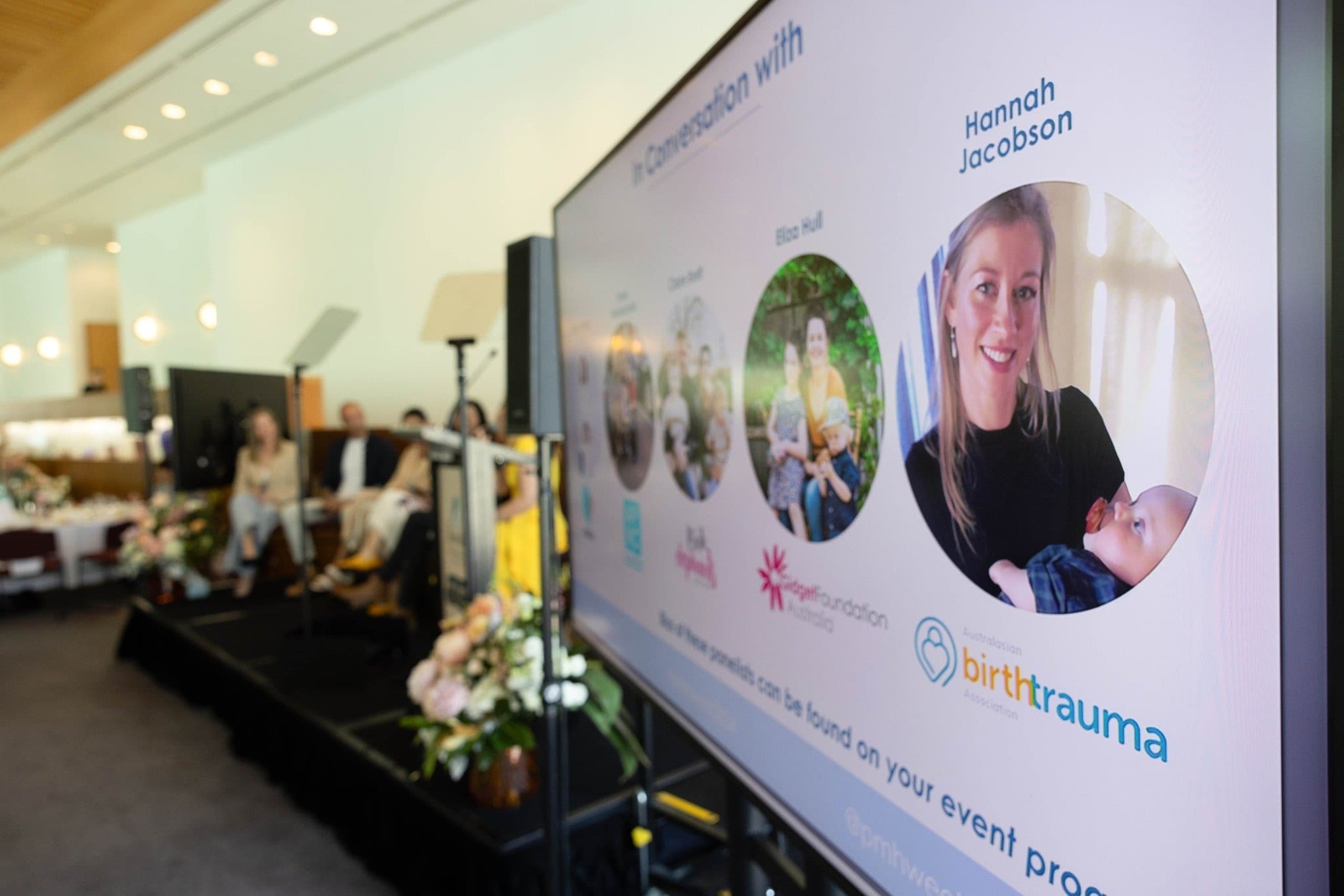Trigger Warning: This birth story contains details of prolonged labour, instrumental delivery and prolapse. If you are triggered by these topics you may wish to skip this blog or read it once you have support available. If you are seeking support for your birth trauma, you may wish to contact our Peer Support Service.
I never really wanted to be pregnant. It all sounded too hard, too painful, to give birth. That fear kept me from making the decision to have a child for many years.
I was 37 when I found out I was pregnant. Interestingly, once I knew the baby was coming the fear mostly left and I felt I could do it. But I had no idea that the day the baby came would be the easy part.
One day I woke up with cramps. It lasted all day. In the afternoon I rang the birthing centre to ask if these cramps could be the start of labor. I was told “If you are describing them as cramps then you are not in labour. When the contractions start you will know.” Of course, I had never had a baby before so how would I know? I told the nurse that, but she maintained “you’ll just know”. So, I tried to ignore them and carry on with my day.
The contractions came in continuing waves all day and into the night. The cramp would just start to ease off and the next would start. At some point after midnight I developed a new pain in between my cramps. It was inconsistent but I knew it was labor even though there was no “contraction” that I could time with a break in between. About 4am I woke my husband and said he needed to take me to the hospital – one hour away.
When we arrived and I described what was happening they were sceptical and hooked me up to a machine. The machine showed irregular and weak contractions. So not expecting much they checked to find me 6cm dilated so moved me straight into the birthing suite.
Hours later, at the end of the midwife’s shift, she checked my cervix again. It was very painful and I asked her to stop. She thought I had not progressed much further and suggested they hook me up to the IV – the same as they do to induce labor. Telling me the contractions would get stronger and more painful, I elected to have an epidural. I was exhausted with no sleep since the morning before and the epidural gave welcome relief.
All this turned out to be a bad idea though. The contractions got more irregular and not very strong. I could still feel each one but no pain. When they deemed I was fully dilated they made me put me feet up in stirrups and took away the bottom part of the bed. Even though my leg went to sleep they would not let me move or put my leg down no matter how much I insisted.
I was instructed to push with the contraction, but they were never strong enough and kept stopping so the baby kept slipping back down. After 2.5 hours of this, they brought out the forceps and pulled the baby out with just one helping push from me. I ended up with a 3b tear. I was then left for hours waiting for a theatre to be free because the severity of the tear meant that it would need very careful repair and good lighting.
“After 2.5 hours of this, they brought out the forceps and pulled the baby out with just one helping push from me.”
It was Easter, only one theatre was operating, and an emergency came in. So, they stitched me up in the room about 2am. During this time, my baby was taken to ICU with mild hypothermia from the cold temperature of the birthing room, so I did not see her again until the next day.
My medical advice after the procedure was that I was cautioned to rest, feed lying down as much as possible and not to bear down on the toilet. That was all. I didn’t appreciate the severity. After all, I knew lots of ladies (my mum, my aunt) who had forceps assisted births and they had never mentioned a prolapse as a result.
My baby spent 5 days in NICU. Every two hours I made my way from the maternity ward to the NICU because I was determined to breast feed. Fortunately, the maternity ward keeps electric wheelchairs on hand just for this purpose, so I did not have to walk. As much as I hated this and wanted to just go home, I did benefit from this time because the nurses were very good at showing me how to breastfeed, which turned out to be quite difficult to learn. So much for thinking breastfeeding just happens naturally!
Mostly I fed my baby sitting up rather than lying down, for one because it was easier to get her on the breast. A few weeks after the birth I learned to babywear and started doing short walks because overall my body felt ok, I was desperate to get out of the house and I was unaware that this was a bad idea so soon. Nowhere along the way was I warned of the consequences of doing this too early.
“At my 8 week follow-up at the hospital to check my tear, they diagnosed a prolapse. Which meant little to me at that time. I did not understand what that meant.”
At my 8 week follow-up at the hospital to check my tear, they diagnosed a prolapse. Which meant little to me at that time. I did not understand what that meant. I had felt something at my vagina entrance for weeks, which I had thought must have still been swelling from my stitches but turned out to be my bladder (stage 2 prolapse).
Through my mother’s group, a pelvic floor physio was organised to come and speak to us, which I think is the best thing to have happened. That happened the very morning of my hospital appointment and I almost skipped going. I am so glad I did not because I went with at least a tiny bit of understanding of what they were saying.
After the hospital diagnosis they referred me to their physiotherapy department. A week or so later I tried to put the rubbish bin on the kerb, as my husband had forgotten, not realising it was full and heavy. I felt an awful pressure in my abdomen and it felt like something was falling out. I booked an appointment with my local pelvic floor physio, who had done the talk for my mum’s group and she has been wonderful, talking me through everything. In the end I stopped going to the hospital appointments because they were so unhelpful.
After months of pelvic floor exercises and the physio testing my strength, I was getting no improvement on how strong my pelvic floor contractions were measuring even though in myself I thought things were a lot better. Because I was unable to tighten against the testing probe she has concluded I have an avulsion on one side.
I started off using a cube vaginal pessary which was quite hard to get used to putting it in and out, but it was not comfortable and kept on moving/turning through the day. I now use a gynaecologic pessary which works well for me.
When I first received my diagnosis, I read everything I could, I joined Facebook support groups and read and commented on posts. I was utterly obsessed with what had happened to me, with all the questions like “what should I have done differently”. Now it is two years on and I don’t actually think of my prolapse very much (except for having to put in a pessary every day). Mostly I have been able to get on with my life. I have reasonable bladder control (accidents are rare) and I carry around my 11kg toddler for short stretches now with no problems.
I probably won’t have another child. I am 40 now and too scared of going through it again for fear of making things worse. I am thankful for all the help out there, the support networks and that I did not have to go through this alone. I am so very thankful to have been given the knowledge of and access to a wonderful pelvic floor physiotherapist.
“I am thankful for all the help out there, the support networks and that I did not have to go through this alone.”
I have included a picture that I really like from my early days before I had to stop babywearing. I am glad that I got to enjoy these moments with my baby while I did. My husband took over the babywearing after I needed to stop, which is a lovely way of bonding with a little baby close to your heart.
If you are seeking support for birth-related trauma, please contact our Peer2Peer Support service to connect with one of our Peer Mentors.




